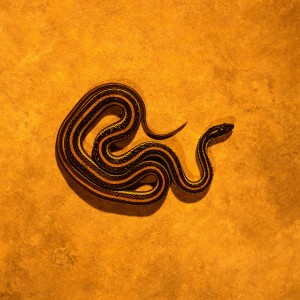 Anticipating this weekend’s sermon from our series entitled, “Lies the Church Believes,” I’m reprising this posting from the Fall of 2008. This weekend’s message: “Lie #3: Tradition is More Important than the Mission of the Church.”
Anticipating this weekend’s sermon from our series entitled, “Lies the Church Believes,” I’m reprising this posting from the Fall of 2008. This weekend’s message: “Lie #3: Tradition is More Important than the Mission of the Church.”
The people of Israel mastered two tasks during their trek through the wilderness: winding their way through the mountain passes and desert straits, and whining as they went. In fact, their impatience was so irritating to God that at one point He sent poisonous snakes to smite them. Numbers 21:8-9 develops the story, saying, “And the LORD said to Moses, ‘Make a fiery serpent and set it on a pole, and everyone who is bitten, when he sees it, shall live.’ So Moses made a bronze serpent and set it on a pole. And if a serpent bit anyone, he would look at the bonze serpent and live.”
Those who glanced at the bronze symbol of God’s mercy did indeed live. In fact, this icon became a type for the lifting up of Jesus on the cross. John 3:14-15 says as much when it states, “And as Moses lifted up the serpent in the wilderness, so must the Son of Man be lifted up, that whoever believes in Him many have eternal life.” But over the years following that day in the desert, the Israelites offered undue affection toward this mere statuette, eventually erecting it in the temple built by King Solomon. And as the Davidic kings transitioned from one generation to another, the bronze serpent began to receive the worship of a people who were succumbing to the idolatry of their neighbors.
Enter Hezekiah, king of Judah. Like his ancestor King David, King Hezekiah was a righteous man who trusted God. No small wonder then that when he ascended the throne of Judah he destroyed all of the idolatrous sites that had been established by some of his predecessors—including that bronze serpent. 2 Kings 18:4 summarizes, saying that Hezekiah “broke in pieces the bronze serpent that Moses had made, for until those days the people of Israel had made offerings to it (it was called Nehushtan).”
Allow me to ask you a couple of very important questions. Is there anything in your life like Nehushtan? Are there traditions, practices, places or people who have in your life subtly displaced the rightful rule of God? We Christians are notorious for what are commonly known as sacred cows—those ideas and practices that are typically useful for building the body of Christ, but which at some point become the driving forces of our faith. Certain styles, strategies, schedules, and systems—for many of us—take on greater influence than the Scriptures and the Sovereign God about which they speak. In Israel, the sacred cow was a bronze serpent, and this is idolatry. What is the sacred cow in your life?
Father, let nothing displace you in my life. When I have given away the affection reserved only for you, forgive me. The traditions and practices and manners of men are passing away. Anything other than total, biblical devotion to you is idolatry, therefore, like Hezekiah I choose to break to pieces the bronze serpents that at one time helped me know you better, but today distract me from you. Amen.


Any thing that is sacred represent God.thereore wether our jobs,money or relationship. and the end is destruction
Ps. Everyone should take some time to read Counterfeit Gods by Tim Keller. Its short and to the point.
BTW, I mean the sacred cow that is most significant in my life, not everyone else’s.
I think the sacred cow that crops up most is knowledge. I dont mean rightly understanding scripture in a way that draws the heart towards a greatening love and desire for Him to be our treasure but the kind of knowledge that leads one to believe he has it figured out. The kind of knowledge that is void of humility and swells rather than grows a person.
This sacred cow is a devil for me. By that I mean it is the cow that feeds the self esteem and human ego. It chokes out humility and closes doors to ministry rather than opening them.
I am not alone in this. Countless theologians, pastors, and authors have dealt with the issue of knowledge growing pride rather than humility. I believe that the Apostle Paul was no stranger to this either, as he was human, fallen, and at the same time gifted with divine revelation.
The worst of this is seen in those who believe that who you are is based on where you studied, what you know, or your IQ. Our western church is victimized by this. Rather than looking for the called to qualify, we try calling the qualified. A look at ministry job sites (church jobs, pastorfinder, etc) will give evidence to that. Because of this we overlook laymen (non-seminary trained by my definition) with our eyes solely fixed on who they studied under.
I am well acquainted with my sacred cow and have had to become accountable to others to help keep me from running back to it for comfort rather than resting in His grace and mercy.